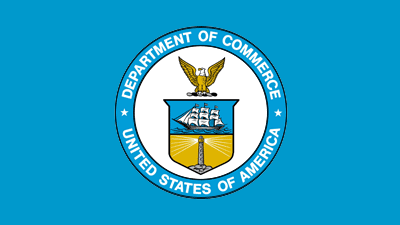
U.S. Department of Commerce Announces Upcoming Entry into Force of the IPEF Supply Chain Agreement
Jan 31, 2024
U.S. Department of Commerce Announces Upcoming Entry into Force of the IPEF Supply Chain Agreement
KCPullen@doc.gov
Wed, 01/31/2024 – 09:07
Export and investment promotion
ICT Supply Chain
FOR IMMEDIATE RELEASE
Wednesday, January 31, 2024
Office of Public Affairs
publicaffairs@doc.gov
The U.S. Department of Commerce today announced that the Indo-Pacific Economic Framework for Prosperity (IPEF) Agreement Relating to Supply Chain Resilience, generally referred to as the Supply Chain Agreement, will enter into force on February 24, 2024. This is a critical step in bringing the landmark, first-of-its kind agreement into action and promoting coordination among the IPEF partners on building resilient, efficient, productive, sustainable, transparent, diversified, secure, fair, and inclusive supply chains.
The 14 IPEF partners – the United States, Australia, Brunei Darussalam, Fiji, India, Indonesia, Japan, the Republic of Korea, Malaysia, New Zealand, the Philippines, Singapore, Thailand, and Vietnam – negotiated the IPEF Supply Chain Agreement to establish a framework for deeper collaboration to prevent, mitigate, and prepare for supply chain disruptions, such as those experienced in recent years from the COVID-19 pandemic.
“I am thrilled to see the continued commitment and enthusiasm of the IPEF partners to make concrete progress and deliver tangible outcomes in record time,” said U.S. Secretary of Commerce Gina Raimondo. “With the IPEF Supply Chain Agreement shortly entering into force, we will now move forward and work collaboratively through this innovative framework with the goal of strengthening our supply chains and preventing potential disruptions before they arise for the collective benefit of our countries’ workers and businesses.”
Since the signing of the IPEF Supply Chain Agreement in November 2023, five IPEF partners – Fiji, India, Japan, Singapore and the United States – have deposited their instruments of ratification, acceptance, or approval, triggering the Agreement’s entry into force provision. With the Agreement’s entry into force on February 24, 2024, the focus in the coming months will turn to various milestones set out in the Agreement related to establishing three supply chain bodies – the Supply Chain Council, Crisis Response Network, and Labor Rights Advisory Board, including:
Identifying the representatives to the Agreement’s three supply chain bodies by no later than March 25;
Selecting the Chair of each of the supply chain bodies by no later than April 24;
Each body adopting the terms of reference by no later than June 23;
Identifying and notifying partners of each country’s list of critical sectors and key goods for cooperation under the Agreement by no later than 120 days after the date of the entry into force for each country; and
Developing the guidelines for the facility-specific reporting mechanism on labor rights inconsistencies in IPEF supply chains by no later than August 22.
The IPEF Supply Chain Agreement was negotiated pursuant to the Ministerial Statement on Pillar II (Supply Chains) released during the IPEF Ministerial meeting in September 2022 in Los Angeles, California. Negotiations were substantially concluded in May 2023, after approximately six months of negotiations. The text of the agreement was made public in September 2023. On November 14, 2023, Secretary of Commerce Gina Raimondo and her counterparts formally signed the landmark agreement in San Francisco, California.
Links:
September 2022 Ministerial Statement for Pillar II
IPEF Supply Chain Agreement Text
November 2023 IPEF Ministerial Joint Statement
IPEF Supply Chain Agreement – U.S. Depositary Site
Bureaus and Offices
International Trade Administration
Leadership
Gina M. Raimondo
Tags
Secretary Gina Raimondo
Indo-Pacific Economic Framework
Indo Pacific
Read the full report from the U.S. Department of Commerce: Read More



